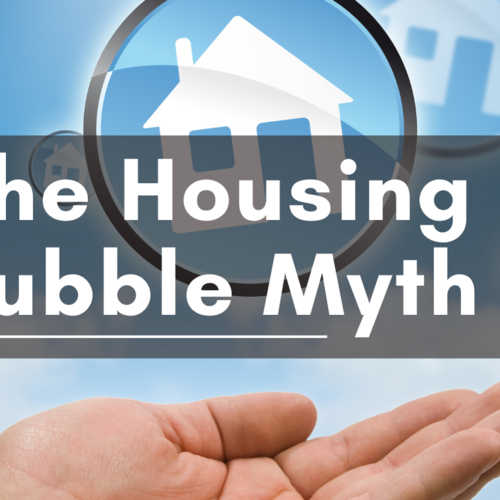Florida’s Housing Renaissance Unfolds: The Florida Real Estate Rebound on the Horizon
According to Florida Realtors® Chief Economist Dr. Brad O’Connor, the Sunshine State’s real estate market is poised for a resurgence in the coming months. Despite facing challenges like elevated interest rates and rising property insurance costs over the past year, O’Connor remains optimistic that we have “weathered the worst of it.”
At the annual Florida Real Estate Trends Summit during the state Realtors’ Mid-Winter Business Meetings, he provided an outlook pointing to renewed vitality ahead. Likewise, Dr. Sean Snaith, a renowned economist and forecasting expert, offered his analysis on broader economic factors impacting the market’s trajectory.
Florida’s Housing Renaissance Unfolds: Interest Rates May Reignite Demand
A pivotal factor influencing the rebound will be the direction of mortgage interest rates. After reaching multi-decade highs in 2023, O’Connor believes rates have likely peaked. Moreover, he speculated the Federal Reserve could begin cutting rates as soon as May, potentially bringing them below 6%. “The psychology of buying or selling a home is closely tied to these rates,” he stated.
Consequently, if rates continue descending, buyer demand could be reinvigorated. “Over the next several months, the market could reignite a little bit,” O’Connor affirmed. Despite the limited inventory, he projects homes on the market will fetch higher prices as prospective purchasers regain their footing.
Florida’s Housing Renaissance Unfolds: Florida’s Sustainable Housing Model
Another factor bolstering Florida’s real estate market is its sustainable housing development approach compared to other regions. O’Connor highlighted data showing the state has consistently maintained a more balanced ratio of housing units to population over the past two decades.
“We’ve been right-sizing our housing stock in a responsible way,” he explained. “Other states allowed a bunch of overbuilding and speculation, which left them with an oversupply after the last crash. Florida was much more disciplined.”
This moderated growth strategy insulated the state from severe boom-and-bust cycles that plagued markets like Arizona, Nevada, and California. As a result, Florida weathered the previous housing crisis with relatively less volatility.
Looking ahead, this measured approach to development bodes well for stable long-term growth and price appreciation. “Yes, we’ve had plenty of demand fueling home price increases recently,” O’Connor noted. “But our housing stock has expanded at a reasonable pace to accommodate that demand over time.”
While pockets of the state experienced more frenetic building activity in recent years, the statewide numbers reveal a market positioned for resilience amid economic fluctuations.
Florida’s Housing Renaissance Unfolds: Spotlight: St. Petersburg’s Vibrant Market
One Florida metro area exemplifying the state’s strengths is St. Petersburg, situated along the Gulf Coast. Despite broader cooling trends, this waterfront city’s housing sector has retained impressive vitality.
“St. Pete is a prime example of a market buoyed by strong fundamentals – solid job growth, rising wages, and persistent population inflows,” O’Connor noted. “It’s checking all the right boxes for sustained demand.”
Indeed, data indicates St. Petersburg employers added over 37,000 jobs between September 2022 and September 2023, reflecting a robust 4.2% year-over-year growth rate. This economic expansion, coupled with the area’s appeal to teleworkers and semi-retirees, continues propelling housing activity.
While median home prices dipped slightly in late 2023, the average sale price still surged around 8% compared to the prior year, settling at $425,000 as of Q4. Days on market also remained compressed at just 25 days on average.
“There’s just an extraordinary quality of life factor driving St. Pete that’s hard to replicate,” O’Connor remarked. “The Renaissance-like revitalization of its downtown, coupled with the coastal amenities, makes it a prime destination for many movers.”
Looking ahead, the city’s favorable demographics and lifestyle appeal position it to lead the statewide housing rebound. As broader economic conditions improve, St. Petersburg exemplifies the resilient markets poised to expand further.
Florida’s Housing Renaissance Unfolds: Demographic Shifts Driving Momentum
Beyond economic fundamentals, demographic trends are providing a powerful tailwind for Florida’s housing market. As Snaith emphasized, the state’s robust population growth – approximately 1,000 new residents daily – generates sustained housing needs.
Moreover, Florida continues attracting retirees and affluent baby boomers from areas like the Northeast seeking affordable costs of living and favored climate. “Many of these buyers are coming in with significant home equity built up over decades,” O’Connor remarked. “Higher interest rates aren’t as much of an obstacle for them.”
Complementing the retiree influx, the rise of remote work has unlocked Florida as a viable destination for professionals across career stages and income brackets. No longer tethered to traditional job hubs, this mobile cohort is gravitating toward the state’s amenities and relative affordability compared to expensive coastal markets.
As these demographic currents persist, they will continue fueling housing demand and contributing to Florida’s economic expansion in the years ahead. “We’re structurally set up nicely to keep accommodating population inflows,” O’Connor stated. “That momentum will help carry us through any near-term turbulence.”
Florida’s Housing Renaissance Unfolds: Positioning for the Upturn
So how can real estate professionals best position themselves to capitalize on the anticipated market rebound? O’Connor advised adopting strategies focused on educating buyers and sellers amid the shifting landscape.
“A huge part of this will be managing expectations,” he explained. “Buyers need to understand that while higher rates create challenges, the recent pullback in pricing has improved affordability metrics in many areas. And sellers must accept that we’re no longer in an era of rampant bidding wars.”
Arming clients with comprehensive data and historical context will be crucial for navigating this transitional period. “Lean on tools that provide insights into pricing trends, days on market, inventory levels, and other hyperlocal dynamics,” O’Connor recommended. “The more informed your clients are, the smoother their transactions will go.”
Additionally, he suggested leveraging new technologies and marketing tactics to reach prospective movers who may have been sidelined by 2023’s turmoil. “There are still plenty of people sitting on the fence waiting for the right circumstances. Stay proactive about showing them emerging opportunities.”
Ultimately, as conditions evolve in Florida’s favor, real estate professionals maintaining an analytically-guided yet nimble mindset will likely reap the rewards of an energized market.
Florida’s Housing Renaissance Unfolds: The Next Chapter
In conclusion, while the past year presented obstacles, the outlook for Florida’s real estate market is one of cautious optimism. With interest rates potentially subsiding, pent-up demand could fuel a rebound. Moreover, the state’s robust economic underpinnings – a strong labor force, sustainable development patterns, population growth, remote worker appeal, and affluent retirees – fortify its position.
As O’Connor summarized, “Even though there aren’t as many homes for sale, the ones that are for sale are selling for more.” Therefore, as we turn the page, industry professionals and prospective buyers alike should remain vigilant for emerging opportunities amidst favorable conditions heralding the market’s next chapter.
If you are looking for Real Estate Companies St Petersburg Fl visit https://avalongrouptampabay.com/




